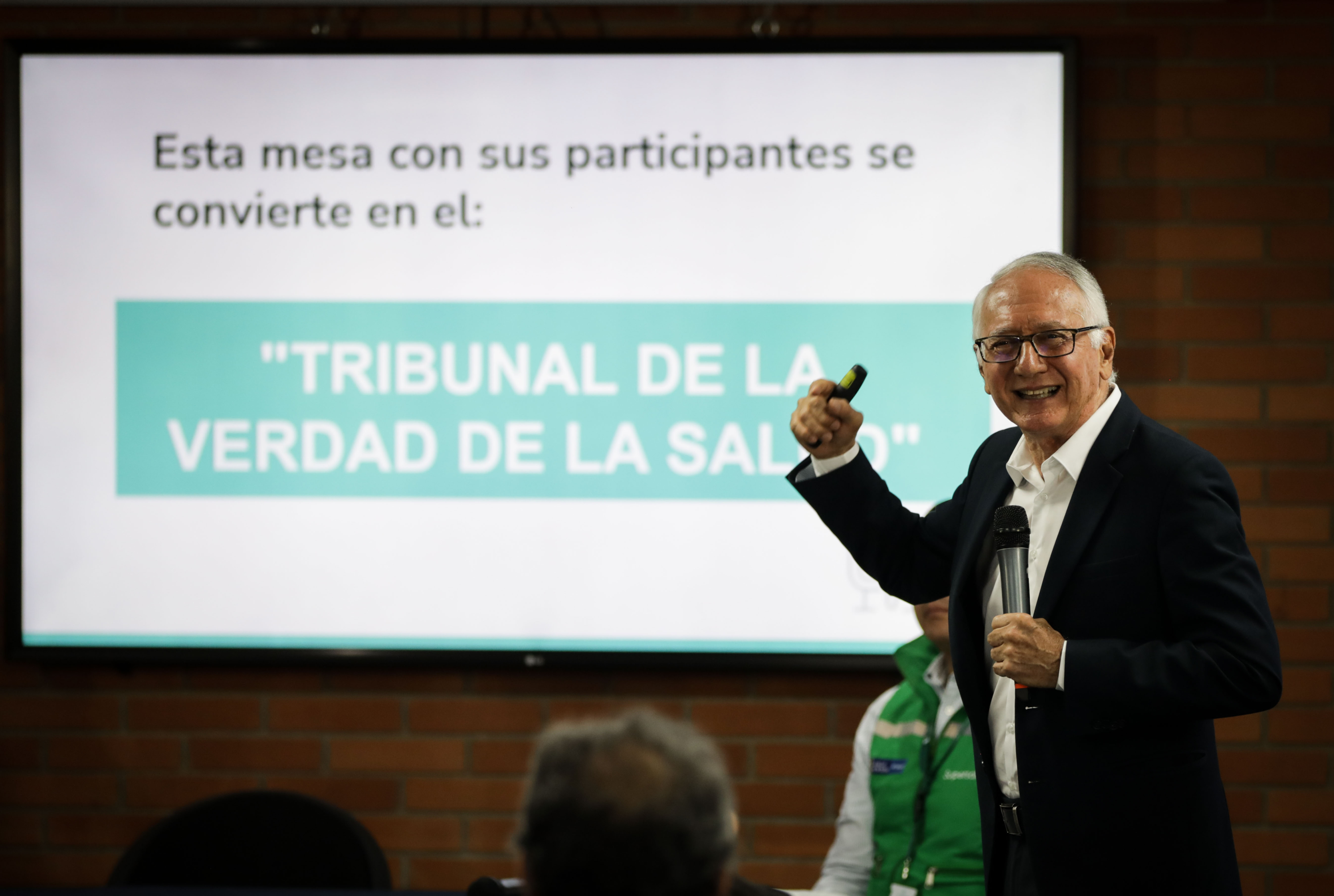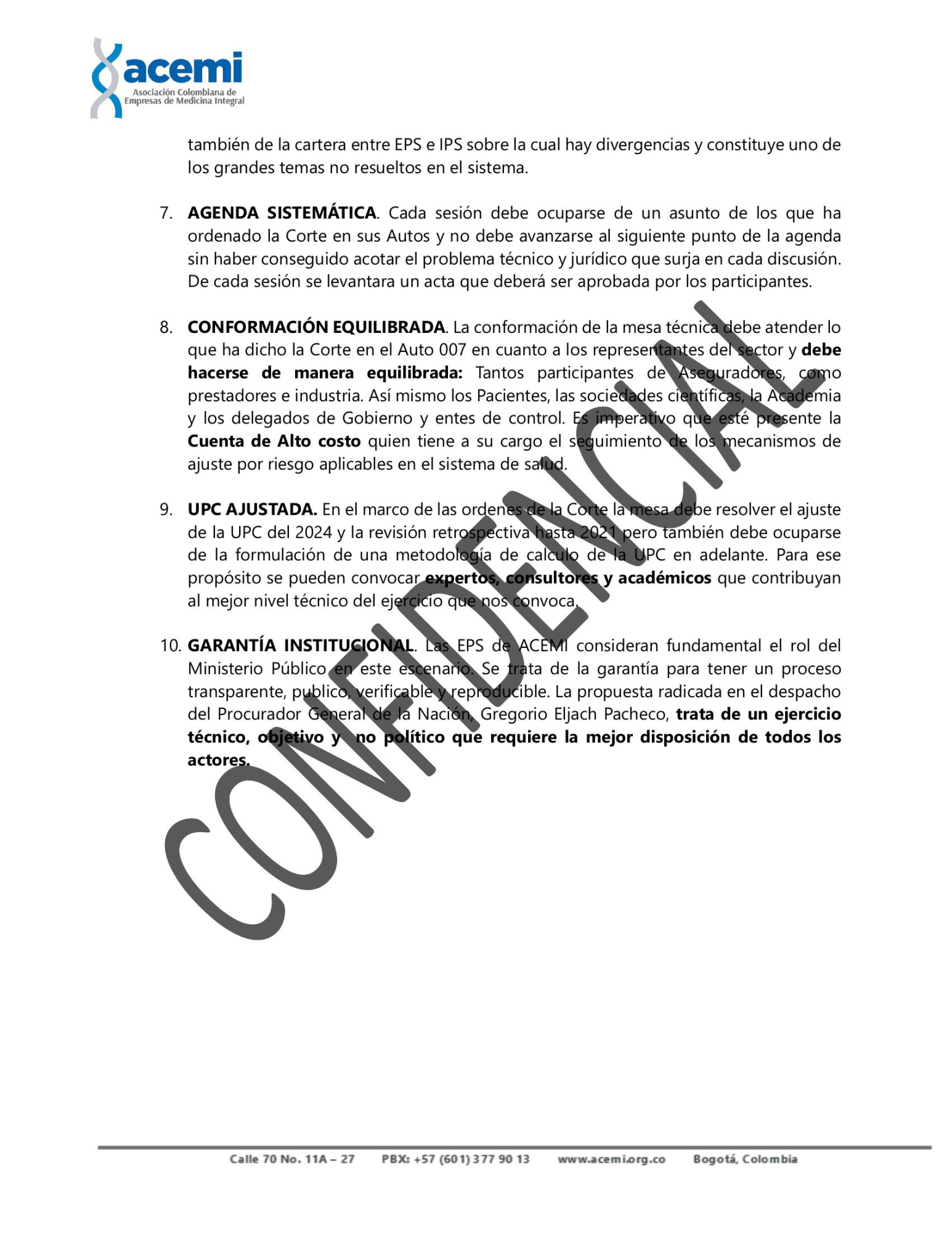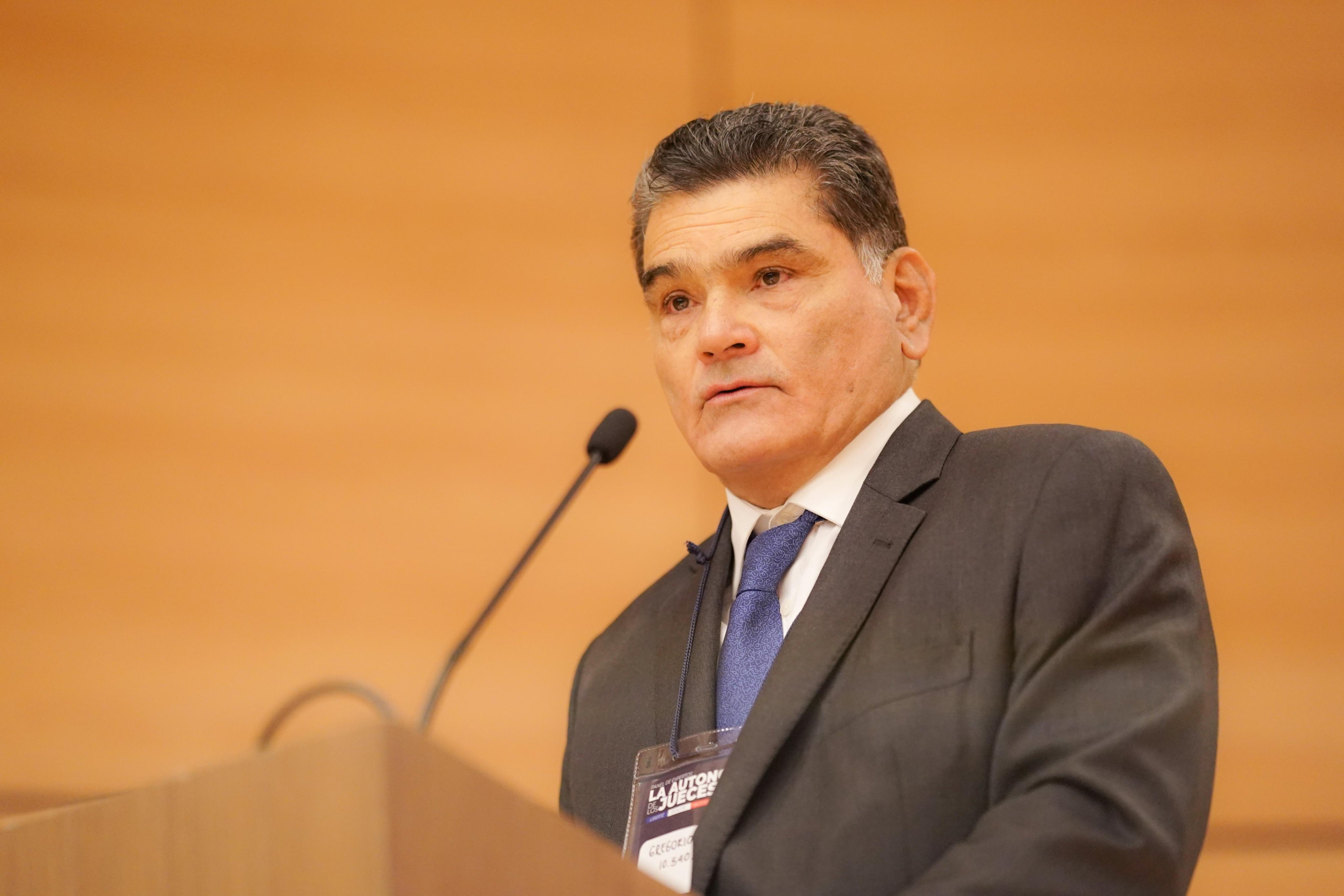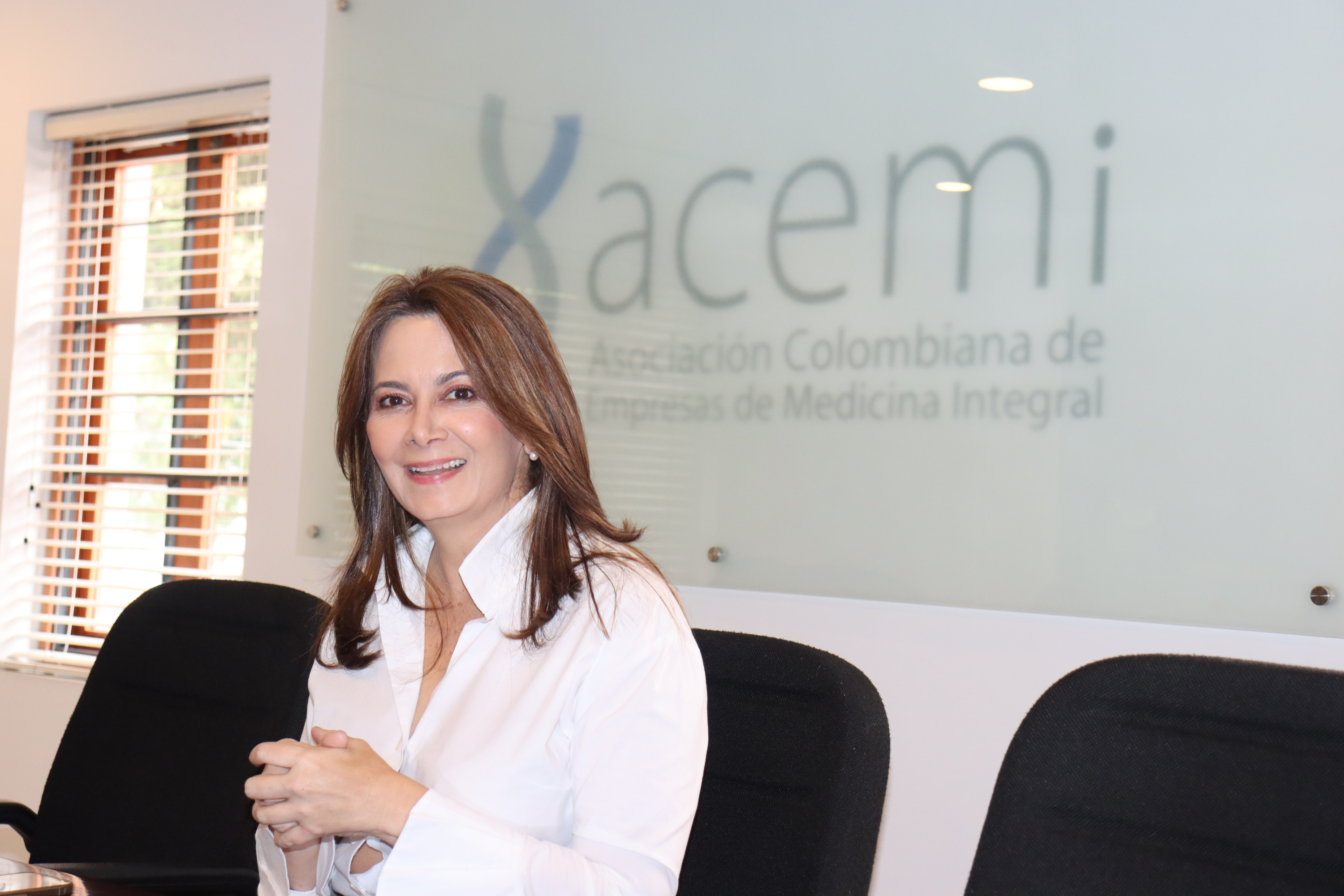Exclusive: EPS and health sector actors' request to the Attorney General's Office to help prevent system collapse

The healthcare system is experiencing a financial crisis that has affected all its stakeholders and puts the lives of millions of Colombians at risk. The Capitation Payment Unit (UPC), which is the amount each EPS receives per member, is reportedly underfunded, as the increase calculated by the government was not based on the system's actual spending. Faced with this situation, the Constitutional Court, in its ruling 007, ordered the formation of technical committees among the various stakeholders to review the delay in calculating the UPC and determine its magnitude.

Health Minister Guillermo Alfonso Jaramillo at the opening of the UPC working groups. Photo: Mauricio Moreno
According to the Colombian Association of Integral Medicine Companies (Acemi), for every 100 pesos received from the UPC in 2024, 109.5 were spent. However, the technical roundtables convened and led by the Ministry of Health to update the UPC increase reportedly failed to meet this objective, so this week the Court, in a new ruling, ordered them to be repeated, this time with more stakeholders and a different methodology.
To ensure that the new roundtables truly fulfill their purpose, Acemi and various stakeholders in the health sector—such as Andi, Asocajas, and user and patient associations—presented a proposal on Friday to the Attorney General's Office, under the direction of Attorney General Gregorio Eljach, to accompany the process and act as an observer of the discussions. The proposal, based on ten pillars and exclusively disclosed to EL TIEMPO, seeks to comply with the Court's mandate in a technical manner, with the inclusion of all stakeholders and within a format in which the Ministry is not both judge and jury, but rather allows the discussion to be resolved impartially.

Points presented by Acemi to the Attorney General's Office. Photo: Private archive
According to Acemi, the current model of discussion led by the Ministry of Health has failed in its attempt to generate technical consensus. Therefore, they propose an approach focused on conflict resolution. To begin with, and recognizing that there are two opposing positions—that of the Government, which considers the UPC sufficient, and that of the insurers, who denounce structural underfunding—they propose a methodology designed to resolve differences through technical dialogue, as if it were a "peace process."
The second point of the proposal emphasizes the need for all actors to have an effective forum to argue their positions. "The parties must have the necessary mechanisms and time to argue, present, and provide information to support their claims and allow for a thorough technical analysis," the proposal states.
A key element proposed by Acemi is the inclusion of an independent mediator. This facilitator, independent of the disputing parties, would be responsible for ensuring fair use of time, the presentation of arguments, and the systematization of the agreements reached at each session. This would prevent the process from being led exclusively by the Ministry. This mediator could be the Attorney General's Office or some other impartial entity.

Gregorio Eljach, Attorney General. Photo: Courtesy
The traceability of information is another key element. Acemi proposes that everything discussed at the roundtables be recorded in a technical repository, available to a group of experts. This group would be comprised of delegates from the Ministry of Health and Social Protection, the Ministry of Finance, the Institute for Health Technology Assessment (IETS), two representatives from academia, and an actuarial expert. The analyses and conclusions of this group would be public and would allow for transparent validation of the process.
The union warns that the available information requires substantial adjustments. Currently, the Ministry has fragmented data, largely due to the lack of reports from the intervened health insurance companies, which serve more than 29 million Colombians. Better access to this data—currently in the hands of the Superintendency of Health, which oversees the nine intervened insurance companies—would allow for a more complete view of the system. It is also proposed to supplement this information with data from the health insurance companies.
Furthermore, there is a need to cross-reference data between non-insurance-based health insurance companies (EPS) and private health insurance companies (IPS) using a standardized database. This would not only allow for a more accurate understanding of actual health spending, but also clarify the magnitude and characteristics of the debt between insurers and providers, a figure that currently presents differences of several trillion pesos, according to the source consulted.
Regarding the functioning of the technical roundtables, Acemi insists that each session should systematically address a specific topic. The next point should not be advanced without having exhausted and technically documented the previous one. At the close of each session, minutes validated by all participants must be signed, which will serve as verifiable input for subsequent analysis.

Ana María Vesga, president of Acemi. Photo: Acemi
The composition of these committees must also be strengthened. In accordance with the Constitutional Court's ruling in Ruling 007, a pluralistic representation is required. Acemi proposes the inclusion of insurers, providers, the pharmaceutical industry, patients, scientific societies, academia, the government, and oversight bodies. The participation of the High Cost Account, responsible for monitoring risk adjustment, is considered essential to provide legitimacy to the process.
Regarding the expected results, the association proposes that not only should the value of the UPC be reviewed for 2024, but also that an adjustment be made retroactively to 2021 and that a sustainable calculation methodology be established for the future. For this exercise, it is suggested that national and international experts in actuarial science, health economics, and public management be convened.
Finally, Acemi emphasizes the crucial role that the Attorney General's Office must play as an institutional guarantor. Beyond its oversight function, the union believes that the Public Ministry must lead a technical, objective process free of political interests.
“The Acemi EPS considers the role of the Public Prosecutor's Office to be fundamental in this scenario. It is a guarantee of a transparent, public, verifiable, and reproducible process. The proposal filed with the office of the Attorney General of the Nation, Gregorio Eljach Pacheco, aims for a technical, objective, and non-political exercise, which requires the best disposition of all stakeholders,” the union concludes.
Environment and Health Journalist
eltiempo





%3Aformat(jpg)%3Aquality(99)%3Awatermark(f.elconfidencial.com%2Ffile%2Fa73%2Ff85%2Fd17%2Fa73f85d17f0b2300eddff0d114d4ab10.png%2C0%2C275%2C1)%2Ff.elconfidencial.com%2Foriginal%2F121%2Fd44%2Fc43%2F121d44c431afc2d16432ffcd0efba6e9.jpg&w=3840&q=100)